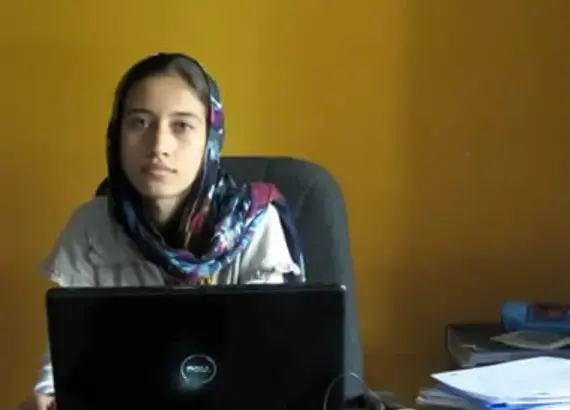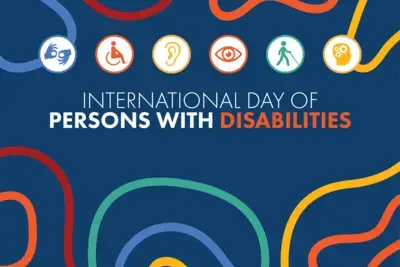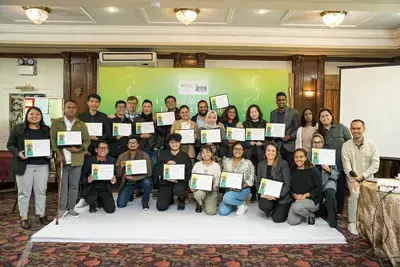
Success Story
Afghan Internship Graduate Starts Her Own Youth Program
Working as an intern in the Afghan parliament in 2007, Atifa Safi helped members and parliamentary committees write reports, take minutes, conduct research and analyze data. She had the opportunity to contribute to the legislative process while seeing the workings of government close up, and the lawmakers benefited from the help that she and other interns provided.
As a fourth year student at Kabul University studying law and political science, her specific assignment was to work with the Internal Affairs and Legislative Commission, participating in its daily administrative tasks as well as providing parliamentarians with analysis on the interpretation of laws and regulations.
During the intern program, carried out by NDI in 2006-2008, 130 students participated from universities located in Kabul, Nangarhar, Bamyan and Herat provinces. Safi was chosen from a pool of more than 700 applicants seeking the kind of lasting experience that can be gained only from an inside look at how government operates. Through the program, interns were placed in the parliament and their local government equivalent, Afghanistan’s provincial councils.
Both the participants and the institutions cited the program’s benefits. In addition to their administrative, analysis and research duties, the interns were exposed to high-ranking figures from both inside and outside of government. They attended a number of forums where key topics were discussed with high-level participants. All told, interns generated more than 30 comprehensive research papers.
Safi graduated from the program when it ended in 2008 and now works at the Friedrich-Ebert-Stiftung Foundation (FES), a nonprofit German political foundation engaged in democracy promotion and international dialogue on economic, social and political development. There, she became project coordinator for the Young Leader Forum program, which helps young people in Kabul and the provinces develop leadership skills.
But Safi couldn’t shake the feeling that she could do more for young people. “The NDI internship program was so productive for me and I learned so much from it,” she said, “that I thought to create a similar program at FES to benefit more students.”
Following through on that desire and building on her own intern experiences, Safi started an FES program to place students as interns at provincial councils across the country. The councils, which are the only face of government that most Afghans ever see, range from nine to 29 members, depending on the province’s population. The councilors’ job is to ensure that citizens’ views are reflected in provincial development planning; to monitor and evaluate development programs; to manage conflict among tribes, villages and districts; and to oversee provincial development spending.
Councils in the provinces of Balkh, Baghlan, Bamyan, Herat, Khost, Ningarhar and Parwan are participating in the FES internship program. As part of an initial one-year pilot program, the interns have six-month placements with those councils, for a total of 14 the first year.
While employment is hard to find in Afghanistan, Safi said she is hopeful that the experiences the interns are gleaning in the provinces will help them find jobs that, like hers, will contribute to democracy and good governance in the Afghanistan.
Related:
Published Aug. 29, 2011



